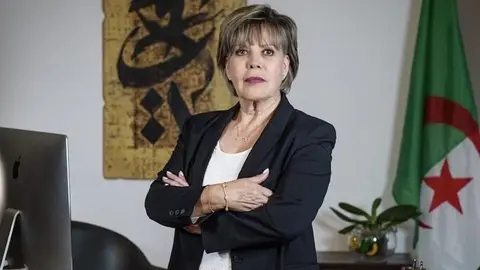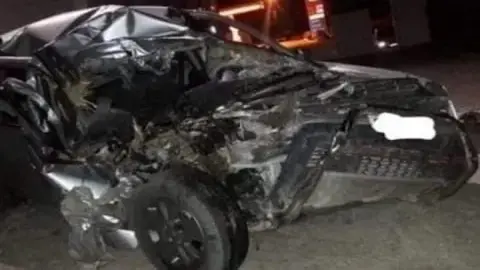Algeria: night-time demonstrations by pro-independence protesters across Kabylia
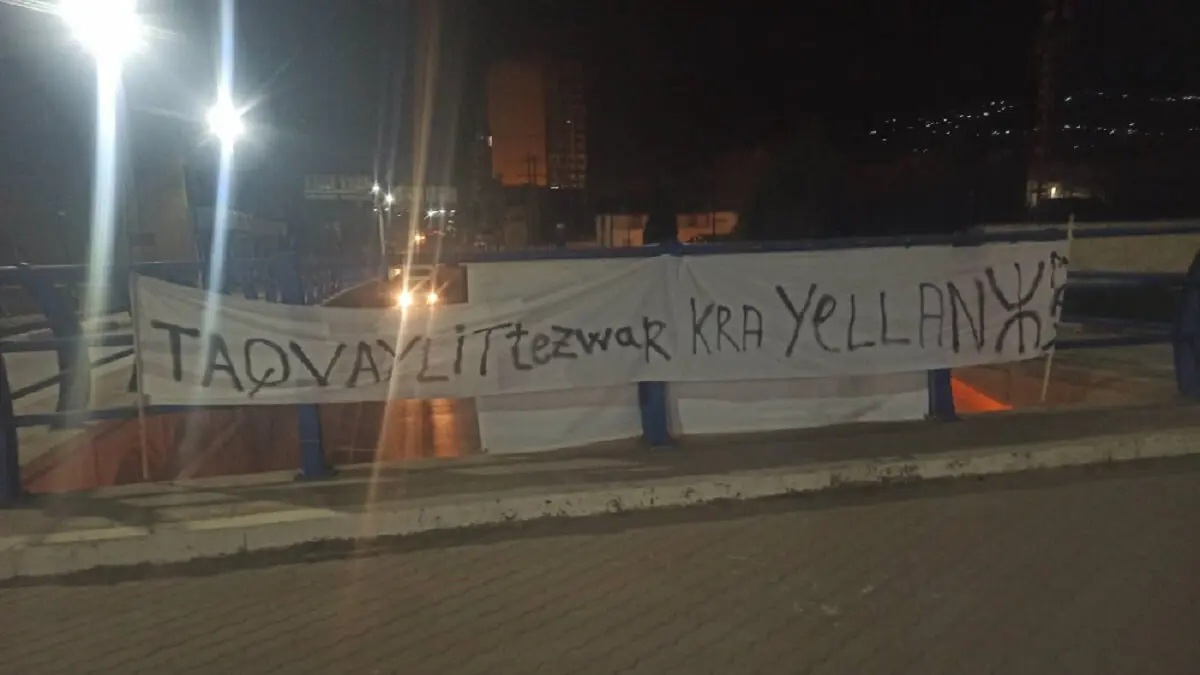
Eager to emulate General Mohamed Touati, known as "the mastermind", one of the influential members of the black cabinet that ruled Algeria during the bloody years of the civil war, Djebbar Mehenna is using the Kabyle card to gain a foothold among political leaders.
Since his release from Blida military prison in 2021, after an eleven-month stay on charges of "illicit enrichment and influence peddling", General Djebbar, who has been retired since 2015, has found the right subterfuge to regain his place in the sun. The new masters of the country, Abdelmadjid Tebboune, newly appointed to the presidency of the Republic, and his army chief of staff, General Saïd Chengriha, are ignorant of the reality of Kabylia and are terribly frightened by the total boycott of the two most important wilayas (departments) of Kabylia, Tizi-Ouzou and Bejaïa, which registered a historic zero percent turnout in the December 2019 presidential elections, provided the ideal opportunity for General Djebbar, who was out of work at the time, to offer his services.
A native of Tizi-Ouzou, the Kabyle capital, he claims to wield great influence over the region. He promised to "tame" its rebellious and recalcitrant population by mobilising the chiefs of the "arouch" (tribes). This is how he managed to gain a place in the circle of decision-makers, starting by rejoining the army a few months after his release from prison.
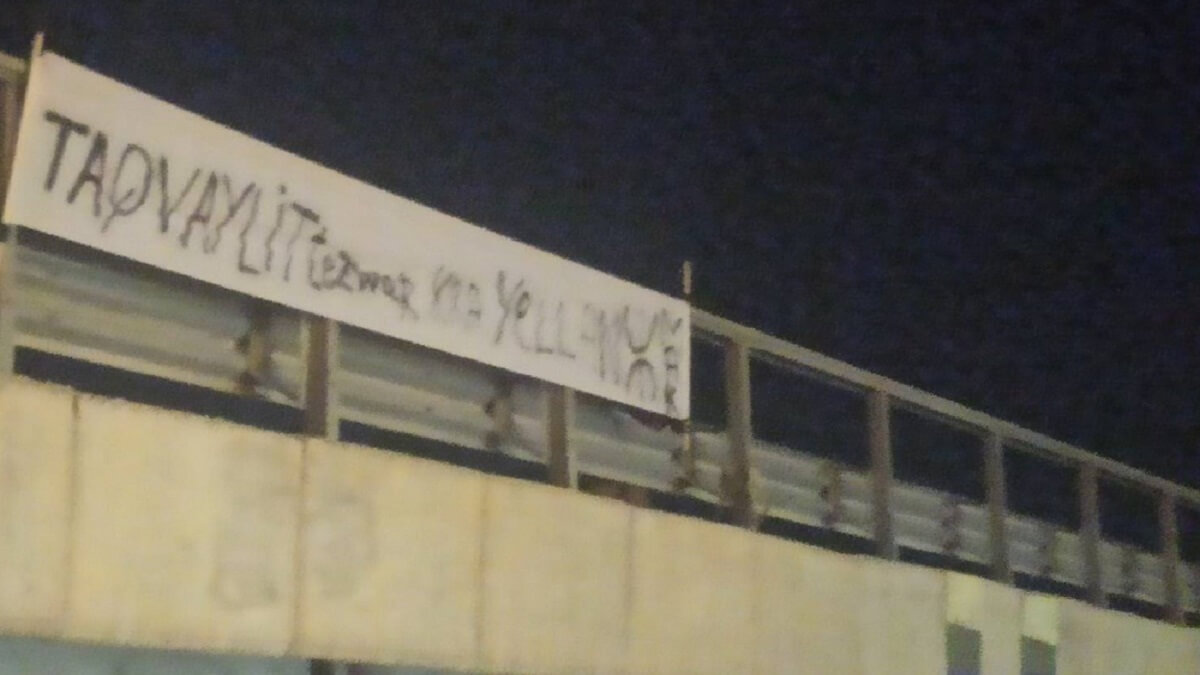
After working without a permanent post for a few months, he was appointed head of a newly created directorate in September 2021. The General Directorate for Combating Subversion (DGLS). A structure dedicated to monitoring the political world both in Algeria and abroad. Its existence was revealed in the Official Journal of 29 December 2021. In violation of the texts designating the members of the High Security Council, General Djebbar Mehenna joined the Council.
This is not the first time he has violated the law. The most serious violation is his reinstatement in the army.
The Algerian Army Regulations (RSA) clearly stipulate that any soldier who has been sentenced to more than four months in prison is automatically removed from the ranks of the military institution. Djebbar Mehenna was sentenced to eight years' imprisonment, eight months of which he served in Blida military prison between October 2019 and July 2020. He left the prison on the sly, without the eight-year sentence being lifted on appeal.
On the other hand, he was retired in 2015 after having headed Army Security for about ten years.
In September 2022, despite having no knowledge of the world of external security, he was surprisingly appointed director general of Documentation and External Security. He brought with him a number of former army security officers, some of whom are known to have cold-bloodedly shot thousands of Algerians in the head. They numbered nearly 20,000, including soldiers.
Among the killers were Hocine Abdelhamid, alias Hocine Boulahya, from the same region as Hocine, and Souahi Zerguine, alias Mouad. Both belonged to the death squad of the Main Centre for Military Investigation (CPMI) in Benaknoun, on the heights of Algiers, led for a time by Djebbar Mehenna, successor of Othmane Tartag, alias Bachir, who is now serving a six-year prison sentence in the military prison of Béchar.
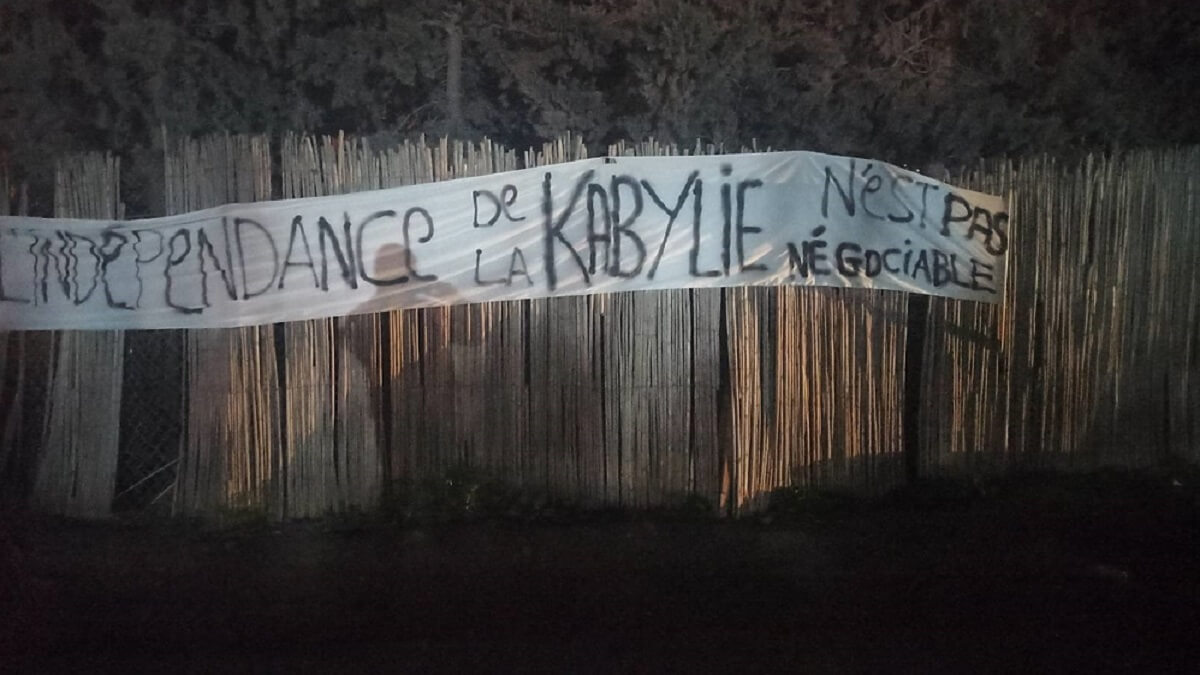
General Mehenna's team is made up of novices and laypersons in the field of foreign intelligence gathering. Like him. This delicate mission needs intelligent and competent decision-makers. As a former non-commissioned officer of the death squad, Sergeant Major Houari, now in prison, pointed out, these men are used to torture and summary executions with barbiturates. This explains the scandalous mistakes and failures of the DGDSE since General Mehenna was appointed to head it. From the attempted kidnapping and murder of an outspoken journalist to the opening of a representative office of an obscure Moroccan party calling for the independence of the Rif, not to mention the organisation of a meeting between President Tebboune and Malian Imam Mahmoud Dicko, which caused tensions between Algiers and Bamako. Not to mention the failure of the attempt to create a Rif movement before running up against the Rif independence party's headquarters and, of course, the plot hatched against President Tebboune, which the Blida court postponed to a later date, 3 March, under pressure from Djebbar Mehenna himself.
To conceal his setbacks at the head of the DGDSE, General Djebbar assembled a small team to draw up a plan for autonomy for Kabylia, which would be proposed to a fringe of Kabylie opponents. The latter would be the antidote to the Movement for the Self-Determination of Kabylia (MAK) led by Ferhat Mehenni from Paris. In the absence of this fringe, the autonomy plan could be proposed to the MAK. The aim of this manoeuvre is to reconquer Kabylia and remove any possibility of a boycott of the presidential elections scheduled for December.
This manoeuvre was quickly rejected by the MAK, through the voice of its leader, who tweeted on 7 March: "This is nothing more than a delaying tactic aimed at confusing the MAK, whose demand for a referendum on self-determination has the overwhelming support of the Kabylie people. It is to combat the idea of this referendum that, since 18/05/2021, the MAK has been classified by these same generals as a 'terrorist' organisation, despite the fact that it has never committed the slightest act of violence".
After listing the numerous acts of aggression against the Kabyle population by the "new Algeria" of the Tebboune-Chengriha duo, Ferhat Mehenni concludes: "This manoeuvre is unrealistic insofar as it is the initiative of a clan which, until now, has not occupied a very prominent place at the top of the hierarchy. It would only be an electoral proposal to get the lobbyists to vote in the next presidential elections, when they are determined to oppose the policy of 'zero lobby' with 'zero vote' by boycotting the poll altogether".
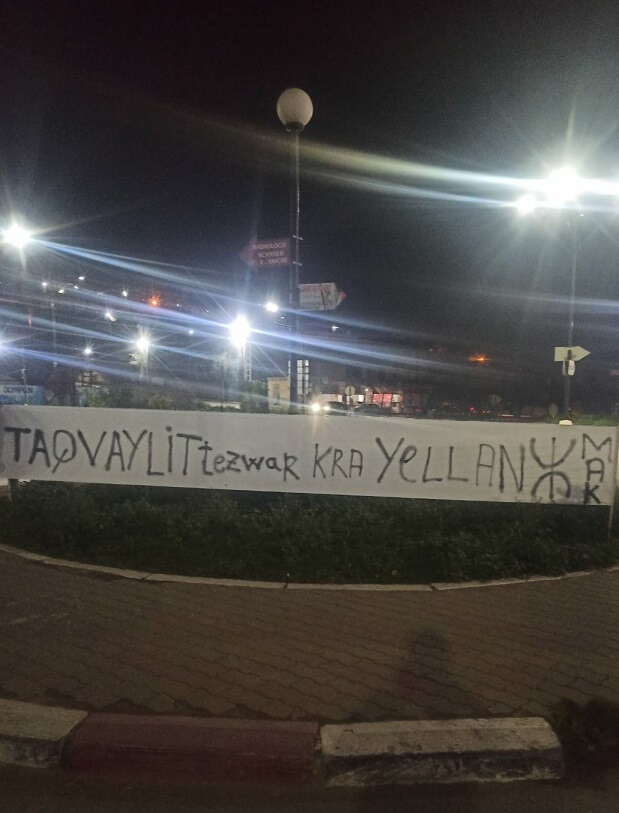
On the evening of 7 March, shortly after this tweet was posted on the X network, hundreds of activists took to the streets to unfurl banners calling for Kabylia's independence. "This is the beginning of a peaceful resistance against any attempt to alienate or take back Kabylia," said one MAK activist.
General Djebbar's move has been rejected not only by the independence movement, but also by supporters of the sacred union of the Kabyles in a united Algeria. The Arab-Islamists, Kabyles or not, also describe this manoeuvre as an attack on national unity. "This is the last straw. Djebbar Mehenna should go back to prison for attacking national unity", says a Kabyle who presents himself as a fierce advocate of a united Algeria.
Looking at the reactions here and there, we can only conclude that Djebbar Mehenna has once again been wrong to show his limits in politics, as he is used to harsh interrogations, torture and threats against powerless people in dark cellars, with his hands tied and blindfolded. This is not the profile of foreign security, which is seen as parallel diplomacy in states that know that intelligence gathering goes hand in hand with intelligence


